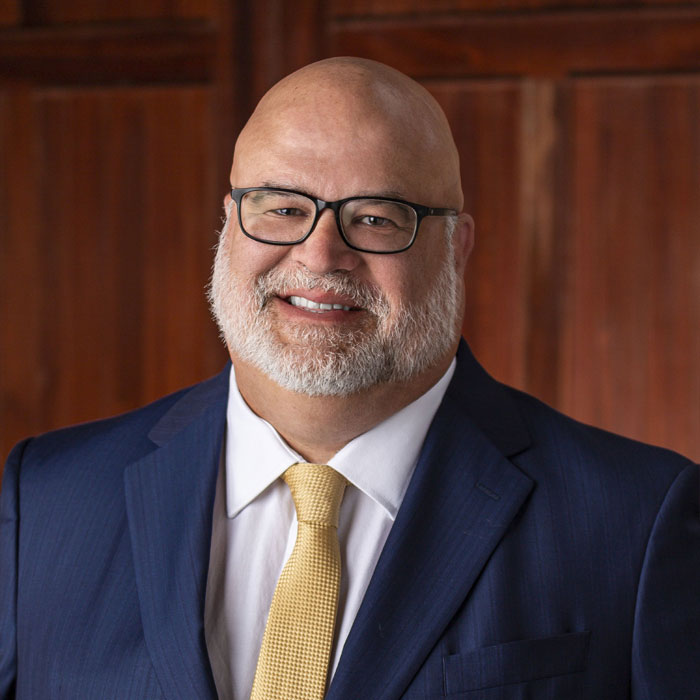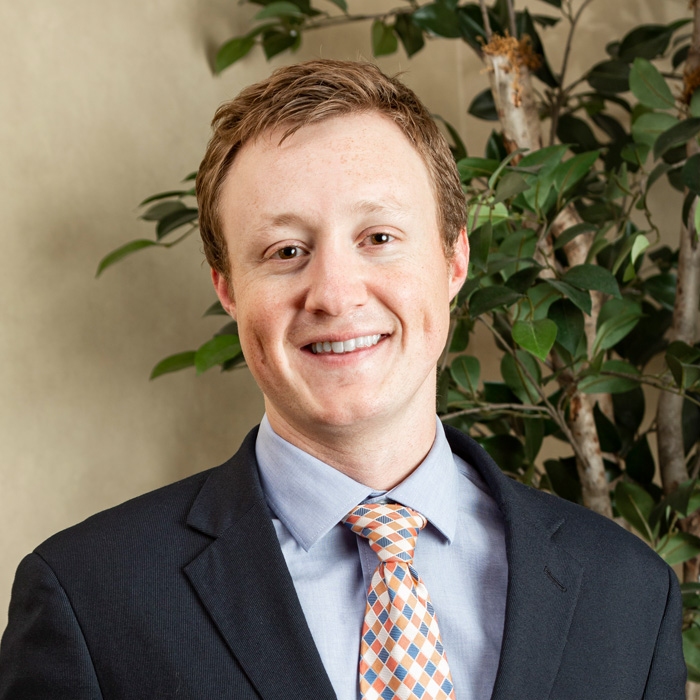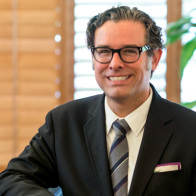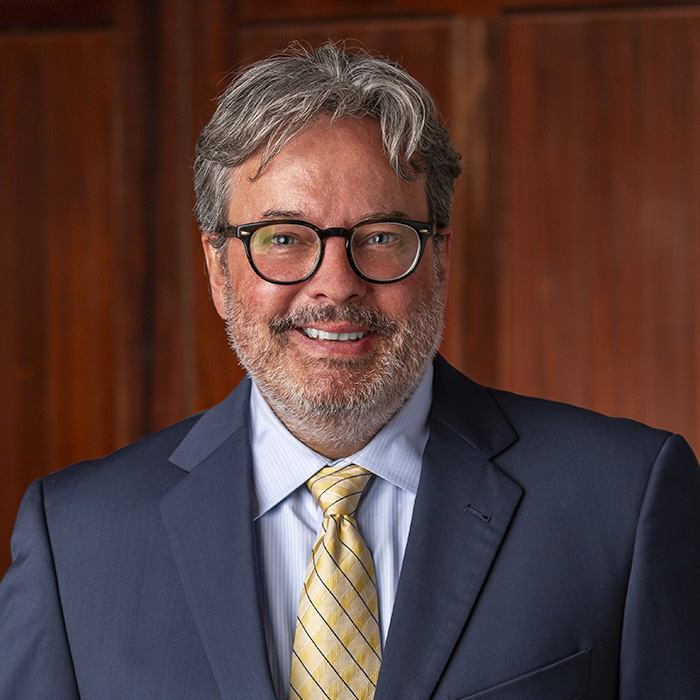Camp Lejeune Water Contamination Lawsuits
RPWB takes pride in representing current and former members of our nation’s armed forces, including those harmed by dangerous water contamination at Camp Lejeune.
Currently, RPWB attorneys are investigating potential cases on behalf of men and women, including veterans, who served, lived, or worked at Marine Corps Base Camp Lejeune, North Carolina, between August 1, 1953, and December 31, 1987, for at least 30 days and subsequently developed cancer or other serious medical issues.
Routine water testing at Camp Lejeune revealed that the water supply systems there were contaminated with unacceptable levels of toxic substances such as Benzene, Tetrachloroethylene (PCE), Trichloroethylene (TCE), Trans-1,2-dichlorethylene (DCE), and vinyl chloride. Many thousands of people bathed in and consumed contaminated water while assigned to Camp Lejeune.
These chemicals are not only toxic but also are known to be carcinogenic. Exposure to these substances routinely found in Camp Lejeune’s water supply can cause health conditions such as Parkinson’s disease, end-stage renal disease, bladder cancer, breast cancer, esophageal cancer, kidney cancer, lung cancer, liver cancer, throat cancer, thyroid cancer, kidney damage, leukemia, multiple myeloma, non-Hodgkin’s lymphoma, scleroderma, systemic sclerosis and major cardiac birth defects.
If you or a loved one spent time at Camp Lejeune and developed any of the above health conditions, you may have a claim. Please contact us without delay for a free, no-obligation case review. You may call us 24/7 at 1-866-639-0366 or use the form below.
A New Law Will Help Camp Lejeune Water Victims
A new law creates a process for individuals who lived or worked at Camp Lejeune between August 1953 and December 1987 to demonstrate they were harmed by water contamination and seek compensation from the government. The bipartisan Honoring our PACT Act of 2022 has passed Congress and was signed into law on August 10, 2022.
If you served, lived, or worked at Camp Lejeune for at least 30 days during that time period and subsequently developed cancer, Parkinson’s Disease, or had a child with severe birth defects, you may have a claim, but action is required on your part. The window to file suit is now open and will expire in two years. Don’t wait until the last minute as that will impact the quality of your case. Get started with your Camp Lejeune water contamination claim today.
Start your Camp Lejeune Water Contamination Case Review
Or call us toll-free 24/7 at 1-866-639-0366
The Source of the Water Contamination at Camp Lejeune
Water testing at Camp Lejeune in the 1980s revealed the presence of several toxic substances in the water. The main pollutants in Camp Lejeune’s water from 1957 to 1987 were Tetrachloroethylene (PCE) and Trichloroethylene (TCE).
For nearly thirty years, dangerous levels of PCE, which is commonly used by dry cleaners, were found to exist at the Tarawa Terrace water treatment plant that serves Camp Lejeune. The EPA’s maximum safe level for PCE in drinking water is 5 parts per billion. At Camp Lejeune, the water was found to have 215 parts per billion of PCE, which is more than 40 times the EPA’s maximum safe level for PCE in drinking water. Investigations found that nearby, off-base dry cleaners had been improperly disposing of the chemicals for many years. For just shy of 30 years, the Tarawa Terrace water treatment plant that serves Camp Lejeune was contaminated with dangerous levels of PCE.
The other main contaminant found at Camp Lejuene, TCE, is used in the manufacturing of refrigerants and other hydrofluorcarbons and also commonly used as a degreaser on military equipment. The Hadnot Point water treatment facility servicing Camp Lejeune was highly contaminated with TCE. Testing found a peak of 1,400 parts per billion, which is well above the maximum 5 parts per billion that the EPA says is safe.
Other contaminants found in the Camp Lejeune water system, include mercury and benzene. Supply wells were contaminated by multiple sources such as leaking underground storage tanks for petroleum products, industrial area spills, and waste disposal sites
The pollution and water contamination was so bad that the EPA designated the area as a Superfund site in 1989 and cleanup efforts continue more than 30 years later.
RPWB Helps Our Military Heroes
RPWB’s attorneys proudly represent our current and former military heroes. In addition to our efforts to help people who suffered from health effects caused by contaminated drinking water on Camp Lejeune, our attorneys also represent many service personnel and veterans who developed hearing loss as a result of faulty 3M earplugs. In fact, RPWB serves in leadership capacity of the national lawsuit.
RPWB is a 2022 U.S. News Best Law Firm and is the top-listed product liability law firm in South Carolina according to Best Lawyers. We have a reputation for successfully handling complex litigation that benefits people harmed through no fault of their own.
If you or a loved one spent time at Camp Lejeune and Parkinson’s disease, end-stage renal disease, bladder cancer, breast cancer, esophageal cancer, kidney cancer, lung cancer, liver cancer, throat cancer, thyroid cancer, kidney damage, leukemia, multiple myeloma, non-Hodgkin’s lymphoma, scleroderma, systemic sclerosis and major cardiac birth defects, please contact us without delay for a free, no-obligation case review. You may call us 24/7 at 1-866-639-0366 or use the form on this page.
Our Experienced Lawyers
How can we help? Fill out the form for a free case review.
Contact Us
- Toll Free: 888.293.6883
Case Types
Related Posts
Mar 22, 2024
Asbestos Finally Banned in United States
We’ve been waiting nearly 50 years to type this: Asbestos is finally banned in the United States. After decades of inadequate protections for workers, the EPA has finally banned the only remaining type of asbestos still imported into America. More than 50 countries have already banned the use of asbestos, which is known to cause […]
READ MOREJan 22, 2024
Gordon Rhea Wins USVI Bar Association’s Highest Honor
RPWB of counsel attorney Gordon Rhea was honored with the highest award during the Virgin Islands Bar Association’s annual meeting on December 8, 2023. The award ceremony highlighted Rhea’s dedication to the legal profession and his commitment, dedication and valuable contributions to the people of the Virgin Islands. The Winston A. Hodge Award for Public […]
READ MORENov 27, 2023
RPWB Represented a Whistleblower who Helped the Federal Government Recoup $1.7 million
ORLANDO, Fla. – The federal government has recouped $1.7 million from a healthcare provider who fraudulently billed Medicare and TRICARE for medical procedures that were not deemed necessary and were performed by an unqualified technician. In the settlement agreement, Jena Medical Group LLC, as well as several individuals associated with the company, have agreed to […]
READ MOREOct 17, 2023
Local Non-Profit to Receive $500,000 to Help Low Income Households Save Money on Power Bills
CHARLESTON, S.C. – A local energy conservation non-profit will receive nearly $500,000 to help low income residents in Berkeley, Georgetown and Horry counties conserve energy and save money on energy bills. The Sustainability Institute will receive $484,345.89 in unclaimed monies from the 2021 settlement of the class action lawsuit Hearn v. Santee Cooper. The case […]
READ MOREOct 02, 2023
RPWB Announces the Passing of J. David Butler
It is with great sorrow and heavy hearts that we announce the passing of our friend, colleague and law partner, J. David Butler on September 30, 2023, after a valiant three-year battle with cancer. He was a friend to all and was, quite simply, the nicest guy one could have the pleasure of knowing. Dave […]
READ MOREAug 21, 2023
17 RPWB Attorneys Selected for Best Lawyers in America List
MOUNT PLEASANT, S.C – Seventeen RPWB attorneys were selected for the 2024 edition of The Best Lawyers in America® list for numerous practice areas including personal injury, product liability, mass tort, class action, qui tam and medical malpractice litigation. This marks the seventh consecutive year in which RPWB is the top-listed plaintiff law firm in […]
READ MOREMay 01, 2023
Trial Lawyer Deon Tedder Joins RPWB
Trial attorney Deon Tedder has joined Rogers, Patrick, Westbrook & Brickman, LLC, where he will focus on personal injury, mass torts and criminal defense work out of the firm’s Mount Pleasant and Columbia offices. Tedder joins RPWB after working at David Aylor Law Offices for the past five years, where he helped many clients in […]
READ MOREFeb 03, 2023
Johnson & Johnson Talc Bankruptcy Petition Dismissal is a Win for Mesothelioma and Ovarian Cancer Victims
By Dave Butler In a significant victory for injured consumers, the Third Circuit Court of Appeals dismissed the bankruptcy petition of a Johnson & Johnson subsidiary that holds the company’s liabilities for claims brought by thousands of consumers injured by exposure to asbestos-contaminated talc in Johnson & Johnson products. The dismissal, on January 30, 2023, […]
READ MORENov 03, 2022
U.S. News & World Report: RPWB is a Top National Law Firm for Mass Torts & Class Actions
CHARLESTON, S.C. — RPWB is incredibly proud to be selected as one of the top national law firms for mass torts and class actions by U.S. News & World Report. RPWB is officially listed as a Tier 1 law firm for such cases, the highest possible designation. In addition to the national selection, RPWB also […]
READ MOREOct 12, 2022
How Do Camp Lejeune Lawsuits Actually Work?
You’ve no doubt seen the ads on television, but did you ever wonder how Camp Lejeune water contamination lawsuits actually work? Our team breaks it down for you. RPWB has filed its first administrative claims with the Navy JAG, the first step in the litigation process under the Camp Lejeune Justice Act. The JAG is tasked […]
READ MOREAug 18, 2022
With Sixteen Attorneys Named to Best Lawyers List, RPWB is the Top-Listed Product Liability and Class Action Law Firm in the State
Sixteen RPWB attorneys were selected for the 2023 edition of The Best Lawyers in America® list for numerous practice areas including personal injury, product liability, mass tort, class action and medical malpractice litigation. This marks the sixth consecutive year in which RPWB is the top-listed plaintiff law firm in South Carolina for both product liability […]
READ MOREAug 10, 2022
With a New Law, Camp Lejeune Water Contamination Victims Finally Have Legal Recourse
For more than 30 years, the drinking water at Marine Corps Base Camp Lejeune was contaminated with a cocktail of dangerous toxins linked to cancer, leukemia, Parkinson’s disease and other serious medical conditions. Now after intense lobbying by veteran’s groups and others, victims of Camp Lejeune’s contaminated water have legal recourse for compensation. On Wednesday, […]
READ MOREAug 03, 2022
Congress Passes Camp Lejeune Water Contamination Law
Over a 34-year period, many thousands of Marines and their families were exposed to dangerous water contamination at Marine Corps Base Camp Lejeune. After a long wait, justice may finally be in sight. Congress approved bi-partisan legislation on Tuesday night that will clear the way for veterans and their families to seek compensation in federal […]
READ MOREJul 05, 2022
Camp Lejeune Water Contamination Law Close to Passing, Would Finally Bring Justice to Veterans and their Families
A bill that is close to becoming law could finally provide justice and financial relief to veterans and their families for health problems caused by water contamination at Camp Lejeune in North Carolina. The bi-partisan Honoring our PACT Act of 2021 has passed both the U.S. Senate and the House of Representatives. It was sent […]
READ MOREJun 21, 2022
RPWB Helped Doctors Get Refunds for Non-Conforming Records Software
RPWB attorneys played a leading role in more than 5,000 doctors’ offices receiving refunds for being misled about their electronic medical record software qualifying for Medicare and Medicaid incentives. For years, Greenway Health sold software it claimed was certified under the federal government’s “Meaningful Use” program. That program includes financial incentives designed to reward physicians […]
READ MORE






